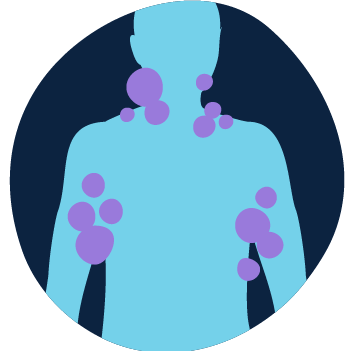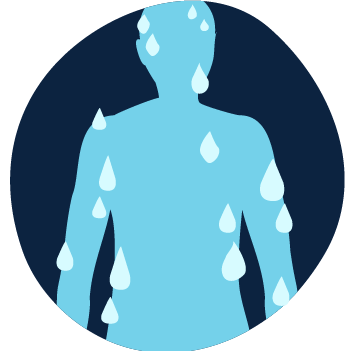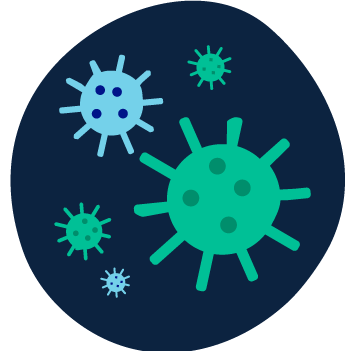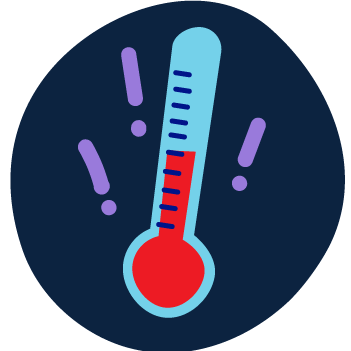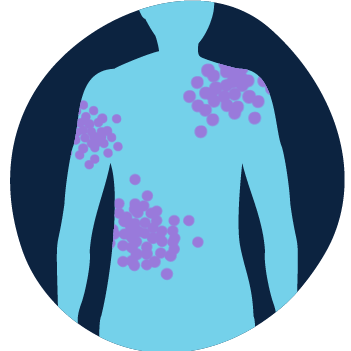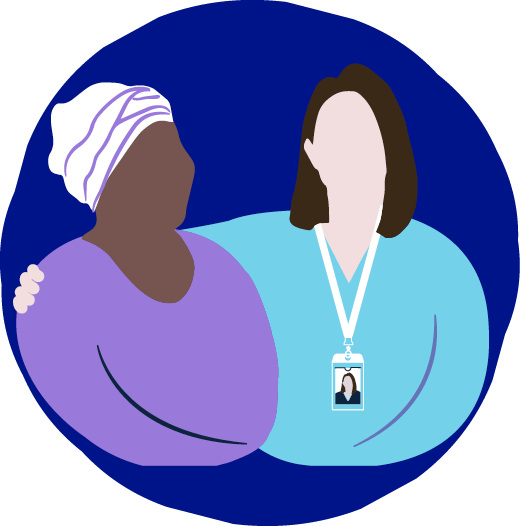World Lymphoma Awareness Day
Do you know what to look for?
This World Lymphoma Awareness Day is an opportunity to learn more about this blood cancer, like common signs and symptoms.
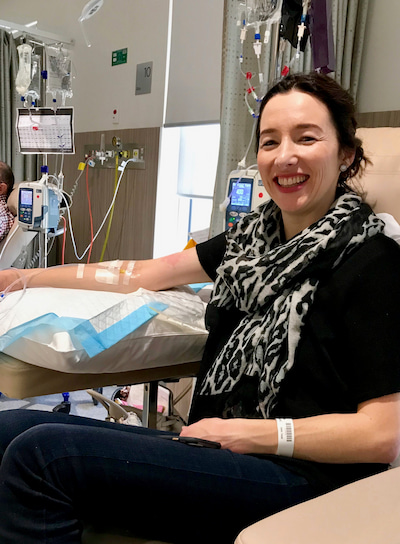
Steph initially ignored a lump in her armpit
She had been on holidays before she talked to a GP about the lump, which was becoming painful.
She went on to also have night sweats and muscle fatigue, before surgery and a PET scan finally confirmed a lymphoma diagnosis.
Lymphoma symptoms may be vague and similar to other respiratory illnesses. Here are some common lymphoma symptoms explained:
Lumps or swellings

Cause: abnormal white blood cells building up in your lymph glands.
What you might expect:
- most likely to notice these in your neck, armpit or groin
- usually painless, although some people find they ache.
If there are lumps or swellings further inside your body, and they press on organs such as your lungs, this may cause pain, discomfort or breathlessness.
Night sweats
Cause: unknown.
What you might expect: some people with lymphoma have night sweats but we don’t know what causes this yet.
Repeat or severe infections
Cause: ineffective white blood cells, which fight infection.
What you might expect:
- infections that are persistent, recurrent or severe
- flu-like symptoms such as chills or shivering, coughing or a sore throat
- mouth ulcers that don’t go away.
Regular and frequent fevers
Cause: low level of white blood cells, which fight infection.
What you might expect: fevers of 38°C or above that come and go without other obvious signs of infection.
Itchy skin
Cause: some people with lymphoma experience itching over the areas where you have swollen lymph glands.
What you might expect:
- itching due to lymphoma can be very irritating
- it may also cause a burning sensation.
Lymphoma support
We provide free emotional and practical support to anyone affected by a blood cancer, including Hodgkin and non-Hodgkin lymphomas.
To speak to a trained Leukaemia Foundation support team member, fill out an online request form or phone 1800 620 420.
You can also learn more about lymphoma here, or download a free information booklet here.
Last updated on May 23rd, 2024
Developed by the Leukaemia Foundation in consultation with people living with a blood cancer, Leukaemia Foundation support staff, haematology nursing staff and/or Australian clinical haematologists. This content is provided for information purposes only and we urge you to always seek advice from a registered health care professional for diagnosis, treatment and answers to your medical questions, including the suitability of a particular therapy, service, product or treatment in your circumstances. The Leukaemia Foundation shall not bear any liability for any person relying on the materials contained on this website.